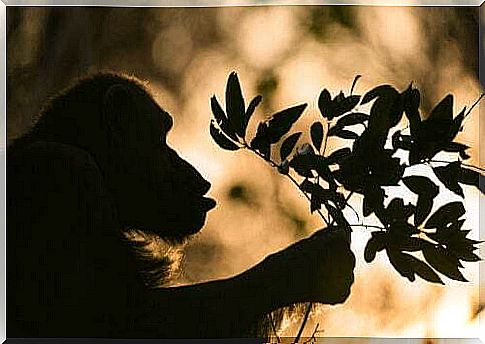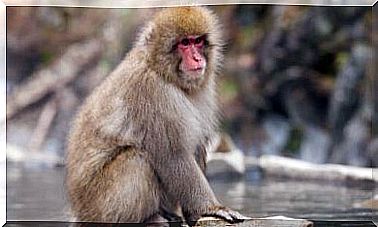The Curious Behavior Of Some Animals During The Solar Eclipse

Solar eclipses are always a very important event for the scientific community, and this also applies to studies on animal behavior. In this article we will talk about the curious behavior of some animals during the solar eclipse.
In 2017, there was a solar eclipse that was broadcast for millions of people on TV and that prompted thousands of Americans to cross the country to watch such an event live. A solar eclipse has little to do with a lunar eclipse, which occurs much more often, so it was a historic moment. Let’s see together the curious behavior of some animals during the solar eclipse.
Solar eclipse: what bees and chimpanzees do
The 2017 solar eclipse was a pivotal time to study animal behavior. An example of this are the dozens of recording stations installed during this eclipse to monitor bees.
What happened was surprising: at the moment of the eclipse, the activity of bees suffered an abrupt interruption and absolute silence reigned, as if all the bees had suddenly disappeared.

Bees usually gradually reduce their activity with sunset, but such sudden twilight has caused this unusual behavior in insects. Hence, it appears that complete darkness causes bees to stop abruptly, no matter what happens around them.
The behavior of the chimpanzees during the eclipse was also quite unusual. It seems that primates are fully aware that something very rare and unique is happening. In Georgia, a group of primatologists studied the behavior of these animals during the solar eclipse and the result is truly amazing.
The chimps showed confusion during the solar eclipse and even climbed trees and platforms to contemplate the eclipse. When it was over, the chimps returned to the ground and resumed their usual activity.
The behavior of other animals
As for domestic and farm animals, the truth is that the behavior of these animals during the solar eclipse is not that unusual. In the case of animals such as cows or sheep, for example, these behave in the usual way when it gets dark and are introduced into the stables. Many animals simply go to sleep, as happened in a zoo with macaques.

Cats don’t seem very interested in this event, while very different reactions have been seen in dogs, from joy to fear. These reactions may be motivated more by the response to their masters’ behaviors than by eclipse-related behavior.
Although there are studies and records on the behavior of animals in solar eclipses, most of the results refer to wild animals and there are numerous stories and legends. Among these, the discoveries of eclipse hunters such as Dave Balch stand out, who in Hawaii saw frenzied activity in the singing of local birds.
Similarly, Tora Greve found that frogs started croaking and birds of prey stopped circling in Zambia. Others have seen cetaceans leap out of the water and some spiders have even been seen to destroy their webs during a solar eclipse.
Who knows if animals engage in other mysterious and unique behaviors during this fascinating natural phenomenon? We sincerely hope that studies and insights will be conducted on this topic in the future.







